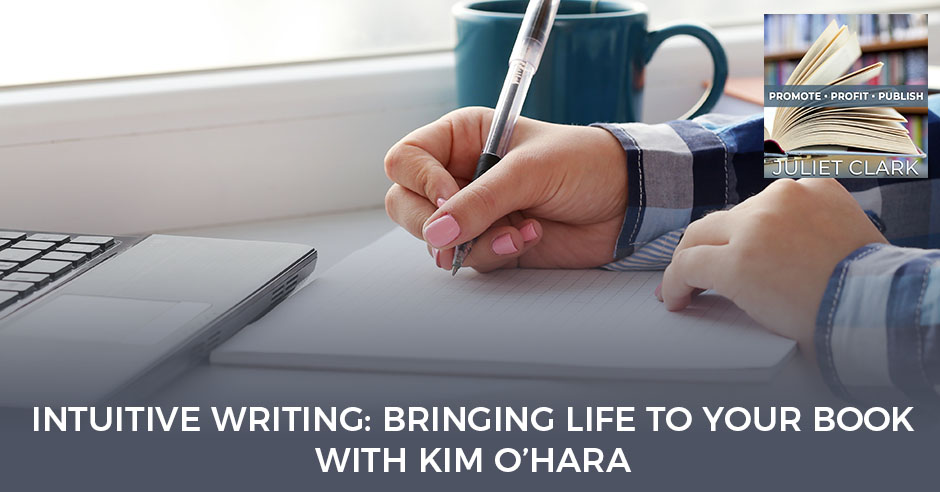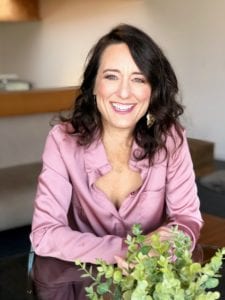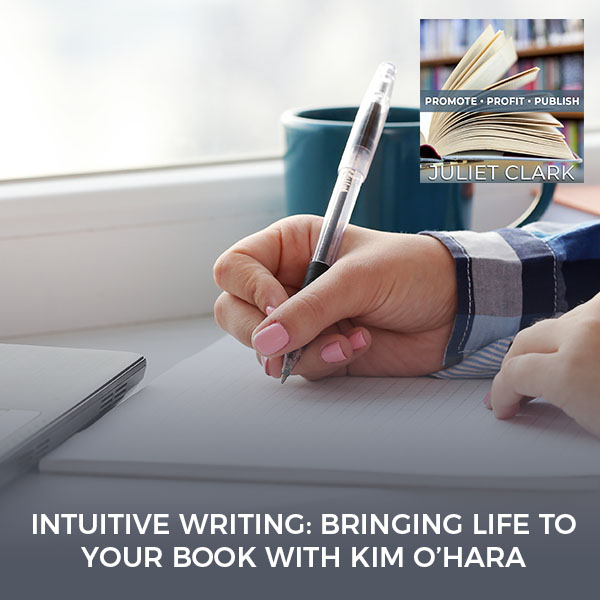
Have you ever wondered what intuitive writing is? On today’s show, Juliet Clark interviews intuitive book coach Kim O’Hara who is the author of Kicking Abuse In The Ass. Today, Kim shares her responsibilities as an intuitive writing coach and how she guides people through their journey of discovery. She also talks about her workshop called Activate Your Story. Listen to Kim as she shares her insight on the importance of having someone guide you towards bringing life to your book.
—
Watch the episode here
Listen to the podcast here
Intuitive Writing: Bringing Life To Your Book With Kim O’Hara
We have a book writing coach, Kim O’Hara, on here. She is an intuitive book cloak coach with high, private profile clients that trust her through the coaching process in writing their books. Not just because of her two decades in Hollywood, but because of the navigation through her own personal trauma journey. She guides them as influencers to share their epic journeys. Her clients include the creator of Good Morning America. The founder of The BrowGal and other successful influencers who speak of their unique experiences in careers ranging from public health to global money exchange.
Kim hosts an online monthly workshop called Activate Your Story. This encourages business owners and entrepreneurs to incorporate their personal brand into their stories. Kim is a nationwide main stage speaker as well as a guest on numerous radio shows and podcasts. She engages in audiences with her depth and wit, and she is funny. She will keynote the Young, Eager Writer’s Conference in Charlotte, North Carolina in 2020. She’s a published author of the memoir called Kicking Abuse In The Ass. You can read a little bit more about her at AStoryInside.com. Welcome, Kim.
Thank you.
I have to tell you, I reconnected with Kim on LinkedIn. We met a couple of years ago. I believe that’s in the Joint Venture Inner Circle.
I know it was also LinkedIn. I feel like it’s always been a LinkedIn experience.
We lost track of each other and we reconnected. This is fun to have her on. What is the difference between a regular writing coach and an intuitive writing coach?
I’m a book coach, I focus primarily on books. I work with the whole author. While they come to me, it’s been a long time that they’ve been waiting to write their book. What comes with that as a lot of the resistance, fear, do I have the time to do it? Am I a writer? We work with a lot of the mindset first, so when they go into writing a book. They have the foundation and that they have the emotional support that they need because it’s a furious process.
Being a writer, when you’re in it, you’re going. I don’t believe that we should take it slow. I believe that when you’re in it, you need to move through it as quickly as you can and let the creative music guide you. What’s happening is while the clients are writing their book, I’m intuitively seeing places that they can step up in their career. I’m like, “Have you thought about doing a serial podcast? Have you thought about speaking over in this particular area?” I’ve had clients that are like, “I just came to you to write the book.” The next thing you know, they have an international company based on the mission that starts to come forth in the book. It’s exciting to work with someone as an author who’s got a whole persona that can then go out in the world.
Journaling and writing are ways for you to feel and know yourself. Share on XI see a lot of that too. They come for one little piece and then they start to see the possibilities. Let’s go back to that fear. I know from writing my own books that fear creeps in. I always call authors a weird group because a lot of them are passive-aggressive. They want to be bestsellers. They want to be famous, but they don’t want to be seen.
When I was a screenwriter, I would hide for eight hours. For a medium, that’s very public and very visual. I have a very soft spot in my heart for writers and isolation. A lot of the people I work with have huge personalities. That’s what they struggle with most. A lot of them don’t like to be in a room alone by themselves. They have always lived these lives of hustle, out there, be there, do this, and they’re being asked to sit in a room alone with their thoughts. Which is why they like having a book coach because they know they’re not completely alone. I’m in the space with them. I held a client appreciation event and I brought fifteen clients together. The common theme was that most of them needed permission to believe that their story was valuable and that is the biggest fear. When they would read out loud an excerpt from their book or why they’re writing the book and the rest of the group was like, “Thumbs up. You’re amazing. You’re going to change the world with that.” You saw them like, “It’s going to be okay. I’m going to be okay.” Yet, every week they’re going in and writing something that they have a feeling inside, “Maybe it’s a bunch of crap.” The fear is very nuanced.
It’s also very real because that’s part of that journey of writing a book. I’m a firm believer that writer’s block is permission from the universe, like, “I’m going to let you write this. No doubt about it, but you’re going to stop, take a breath and heal something while I’m letting you write it.” I always find it as that journey, which might be why I quit writing for a while.
You had some healing to do.
Tell us about your book. Your book was a healing journey, wasn’t it?
I have always been a writer ever since I was little. That’s how I’ve healed. The journals and the writing are a way to feel and to know myself. To hear the words that are inside of me. When I faced the denial that I had carried forth for many years of the abuse. The best way I knew to unpack it was in a book and I broke it down by categories. Here’s how abuse effected my spirituality. Here is how abuse affected my sexuality. It touches every crevice of you. Nothing is left untouched by abuse. In writing the book and also giving writing prompts as I went through of what I use to write through it, allows other abuse survivors to then take the book, like a manual. To go, “I’m going to do these prompts,” and go through it in their own way.
The reason why I wrote it was there was only one book out called Courage to Heal. It was written in 1973 and it was basically how to make it through, white knuckle it. I was like, “That’s not the answer.” It had a tear out that you hand your partner and it explains you. I was like, “I don’t want to give this to anybody.” It’s like, “I’m always going to be damaged, and you always have to be nice to me.” I was like, “No, I’m not signing up for that. I’m not handing this to anybody.” That’s when I started writing the book.
That is so amazing because when I hear stories like that, it is a lot of victimization and you’re coming from a place of empowerment with them. Handing it off to your partner and saying, “I’m not going to take responsibility. This is your problem,” is not the answer. It’s not empowerment for women either. There are elements of our society who have that blame game. It’s the outer stuff that’s causing it and it’s the inner stuff. It does touch every bit of your life, so it sounds like a book that was much needed out in the marketplace.

Intuitive Writing: When you’re in it, you need to move through it as quickly as you can and let the creative music guide you.
One thing I don’t do enough of that I talked to my clients about all the time is I didn’t put any marketing money behind it. I did get a publisher who was well known, and that doesn’t mean anything. I wrote it and I put it out there and I needed to publish a book as a book coach. That’s an important thing to do to show your clients you’re willing to do it too. I felt that the journey was over for me. I didn’t want to put a lot of marketing money behind it. I didn’t want to travel to America talking about sexual abuse. I wanted it to be evergreen. I wanted it to come up whenever it needed to come up and the right people that needed to find it would find it. That’s how I’ve been. I don’t think the book’s over and done. It’s going to have another life. I didn’t take that touring author route.
That’s the difference between what you do and I do. The platform building part of it which is important. Collecting that crowd and that’s exactly, that’s what I’m working with some of Kim’s clients on is, “How do we take that and monetize it?” She has monetized it in a way, just not in the context of what’s in your book with it. It does highlight what most authors think. We talked about, how by the time you’re done with the book, like, “You are so done with the book.”
You’re like, “I’m done. I put it on the shelf. Do a couple of Instagram posts on it and it’s over.” I do have a marketing person who is asking me to put photos of the book out periodically. There’ll be a photo of the book with a Christmas flower. I am doing that because the truth of the matter is, when people do read it, they are changed forever. As a service, I should be doing more, but I’m still focused on my clients doing more. That’s where I get my joy. I’m a healer, an empath, a giver and so all my energy emotes out to their books, their journey, how I could help them, what I see them doing. Whether it’s a show with you or platforms from the stage or ways to get their message out. I’ve seen how much time and energy put into this book. It’s got to go farther.
For most nonfiction authors, it’s a tool. It’s not the end all be all. You’re not going to retire with five million copies like Jack Canfield. For most people, that doesn’t happen. You have to figure out how to make that bigger money with it. Talk a little bit about how you work with people. Because my experience with most people, when they decide to write a book, they don’t hire a coach and then they do a barf a book.
They call me up and they’re like, “Do you want to take my book and read it?” I’m like, “Not really.” You could throw it away and start again. I have had people do that because they’ve wanted to work with me so badly that they’re willing to take that risk. They’ve said to me a couple of months down the road, “I am so glad we did not deal with that book I wrote before I met you.” I tell them, “That book’s a draft. You did it on your own. Good for you. Congratulations.” We’re going to do the work in a structured, systematic, supported way. The best gems of that dump draft you did all alone in your cabin or where you were, if they’re called to end up in this book. Great ideas will not die. In fact, they’ll be emphasized in our work together.
That’s what they’ve found is they’ve been like, “If I had gone with that idea on my own collaborating with you, I realized that had a whole other level. There were fourteen more stories I needed to tell. I created a product thinking about that. Now I want to do this and that.” I’m like, “That’s just collaboration.” When people come to me and typically private clients will do the six-month journey with me, and that gets them to where I hand them to you. I say, “We’ve written a fantastic book. It might need a red line. It always does but we’re ready,” or they do the From Dream to Publishable in 12 Weeks with me, which I’ve had some fabulous clients do, and that’s more of a group. I’m still coaching with them, but they are being coached once a week in a group versus privately. I still read all their work and I’m still passionate about what they do. They just want to put less skin in the game first. They end up spending as much because they keep doing drafts with me. It’s two different kinds of people. Some people are like, “I’m in. Six-month program to the end with you.” Other people are like, “Let’s do the first draft. Let me get to know you a little bit.” Typically they’re like, “You’re fabulous. Let’s keep going.”
That is important because you double-check on their authenticity within the book. There’s that fine line when I say barf a book between TMI and vulnerability. Do you want to talk about that?
I always tell them in the first draft, “Write about what you need to write about. Get it out now. We’ll cut what we need to cut.” I call it getting around to the other side of your books for the reader, not you. Anything that feels like it’s just for them gratuitously needs to go, or it needs to be reframed so that the reader feels like the book was written for them. That’s the problem with a lot of books that are out there. People are like, “I was being real.” It’s like, “No, you dumped on us and we don’t care about you because you didn’t make us feel more important than you.” When you read a book, you want to feel that you’re more important than the writer. If you feel the writer’s more important than you, then you’re like, “Forget it.”
You probably are a better writer than you think. It’s a matter of changing your syntax and dramatic grammatical construction. Share on XThat is so true, especially in a book that’s about healing. Their point is to have people resonate with them, but they make it so about much about them that people can’t connect. Think about that for a minute. If I go out to you and I’m just all about me, it’s all drama all the time. You want to run, you don’t want to connect.
There are books that I read, like Dr. Wayne Dyer’s I Can See Clearly Now, where he’s talking about himself but he’s also making it relevant like, “Here’s a choice you could make based on my experiences of how you can live your life.” I’d always close that book at the end of the night after reading a segment and be like, “I can do that differently. If Dr. Dyer says he can do it, then I can do it.” That’s a successful memoir. When you feel that person has empowered you to also do it. If I say to clients that have been through hard times, I’m like, “Write it in a way that you want to say to other people, ‘If this happens to you, you’re not alone. I’ve been through this too, and here’s what you could do earlier that I didn’t do. Because I didn’t see my triggers, my blind spots, my limiting beliefs or all the stuff that we talk about in the self-help books.’”
What’s the best thing about working with writers?
A lot of the people that come to me aren’t writers. That’s the one thing I want to say. That’s why I say I’m not a writing coach. They come to me, and they mostly have never written before. They might’ve written marketing materials or they wrote 30 years ago. They might’ve taken one class. That is one of the biggest parts of what I do is to work with them to find their voice and become a writer. It’s almost as if we’re making them writers in the process. I hardly say I’m working with writers. I’m working with first-time authors. I’m working with people that want to be better writers and want to feel like they’re writers. If you asked any of my clients, after writing their first book, whether they’re writers, they would still pause.
I don’t know if they would feel they have earned that right. They would go, “I just authored one book.” I’m always saying to them, “You’re a writer if you write.” Brenda Ueland had this great book, If You Want to Write, and it’s about how anybody can write. You have to do it and practice it. A lot of people come to me that have never written anything before, but it’s not a shock because in the movie business, I always work with first-time directors and first-time writers too. That’s all I’m used to. I spent twenty years going, “When you walk on set, here’s what you’re going to see.” They’ve never been there. I’m good at that. If I got someone that was experienced, writing their third book, but wanted to do it differently, I’d be able to rise up to that level too. There are different levels, but my sweet spot is that first foray.
What would you do for someone like me? I’m not a great writer, but I’m a good storyteller.
You probably are a better writer than you think. It’s a matter of changing your syntax, changing your dramatic grammatical construction, and getting rid of a lot of dump words. I can go through someone’s book and show them where they started a sentence going, “That is the way it needs to be or it is such a great feeling to know we went sailing.” Versus turning it around and saying, “Sailing makes me feel like I’m flying on the top of the moon.” There’s a sentence. The other one they wrote was something someone who’s not a writer would write. I keep showing them and gradually, one of the biggest joys I have is when I turn in a chapter and they’ve written one of those sentences. You’re like, “Yes.” I’m constantly like, “Don’t say, ‘I remember.’ Don’t say, ‘Sometimes.’ Don’t say, ‘Probably.’” I’m going through this with them over and over. Are they going to nail it on the first book? Probably not but if they write a second book, they’ll be shocked at how different they are.
Tell us what you do in the Activate Your Story workshop.

Intuitive Writing: When you read a book, you want to feel that you’re more important than the writer.
The Activate Your Story workshops are down. I was doing that once a month to give people a toe-dip and enroll into my Dream to Publishable 12 Week program. It was something that I have wanted to automate. It’s definitely something that people don’t have to be live for. They could get the same teachings from me recorded. We’re in the process of recording it and possibly making it available for free. We’re figuring out what it is because people love it. People can’t do an hour-and-a-half in the middle of the day. They tend to want the recording. I figured, “If they’re going to want the recording, I might as well just record it.”
When we do our workshops, there two one-half days and people always buy the recordings, but I feel we give them so much that they have to have the recordings to catch up because it’s a lot to sit still.
We’re playing with that format. I have a program called What Is In An Outline?. That’s $397 and you basically learn how to outline an entire book. People could go forward with that and do their own book if they have the accountability and they don’t care about the collaboration. That’s something that I have created as well. My goal is to always help people in some way, whether they go the long run with me or whether I get a little taste of the historian side community into their bodies and into their minds. To sprinkle a little of that extra high-quality juice on them.
Where can we find you and where can we find out more?
I have four surefire ways to know you have a book to write. It’s on my website. That’s our opt-in and that’s fabulous. It’s a bunch of videos and I Have a Story to Tell sheet. A lot of active work for them to do. That’s at AStoryInside.com. I also have a newsletter that becomes every week. In that newsletter, I’m writing a blog as well. That’s tons of teachable moments like, “Why we have to write three drafts? What to do if you don’t think you’re a writer? How to write through busy schedules.” It’s a lot of the stuff I coach, I’ve put it into blogs. We’re making the website an, a story inside community for anybody that wants to be a part of it.
Thank you so much for sharing your story and for all of you, go over to her website and check out what she’s doing because many of you said, “This is the year to get going.” We can get going with you anytime.
January 15th, 2020, we are enrolling the Dream to Publishable in 12 Weeks group. I take five people in that group. That’s open for enrollment and anytime for private.
Thank you so much.
Thank you.
Important Links
- Kim O’Hara
- Kicking Abuse In The Ass
- AStoryInside.com
- Courage to Heal
- From Dream to Publishable in 12 Weeks
- I Can See Clearly Now
- If You Want to Write
- What Is In An Outline?
About Kim O’Hara

Intuitive Book Coach Kim O’Hara’s high-profile clients trust her coaching when writing their books due to not just her two decades in Hollywood, but the navigation of her own personal trauma journey. She guides them as influencers to share their epic journeys.
Her clients include the Creator of Good Morning America, the founder of The Brow Gal, and other successful influencers who speak of their unique experiences in careers ranging from public health to global money exchange. Kim hosts a monthly online workshop Activate Your Story, encouraging business owners and entrepreneurs to incorporate their personal stories into their brand.
Kim is a nationwide main stage speaker as well as a guest on numerous radio shows and podcasts. She engages audiences with her depth and wit. She will Keynote the Young Eager Writers’ Conference in Charlotte, NC in 2020. She is the published author of the memoir, Kicking Abuse in the Ass.
Love the show? Subscribe, rate, review, and share!









Leave A Comment